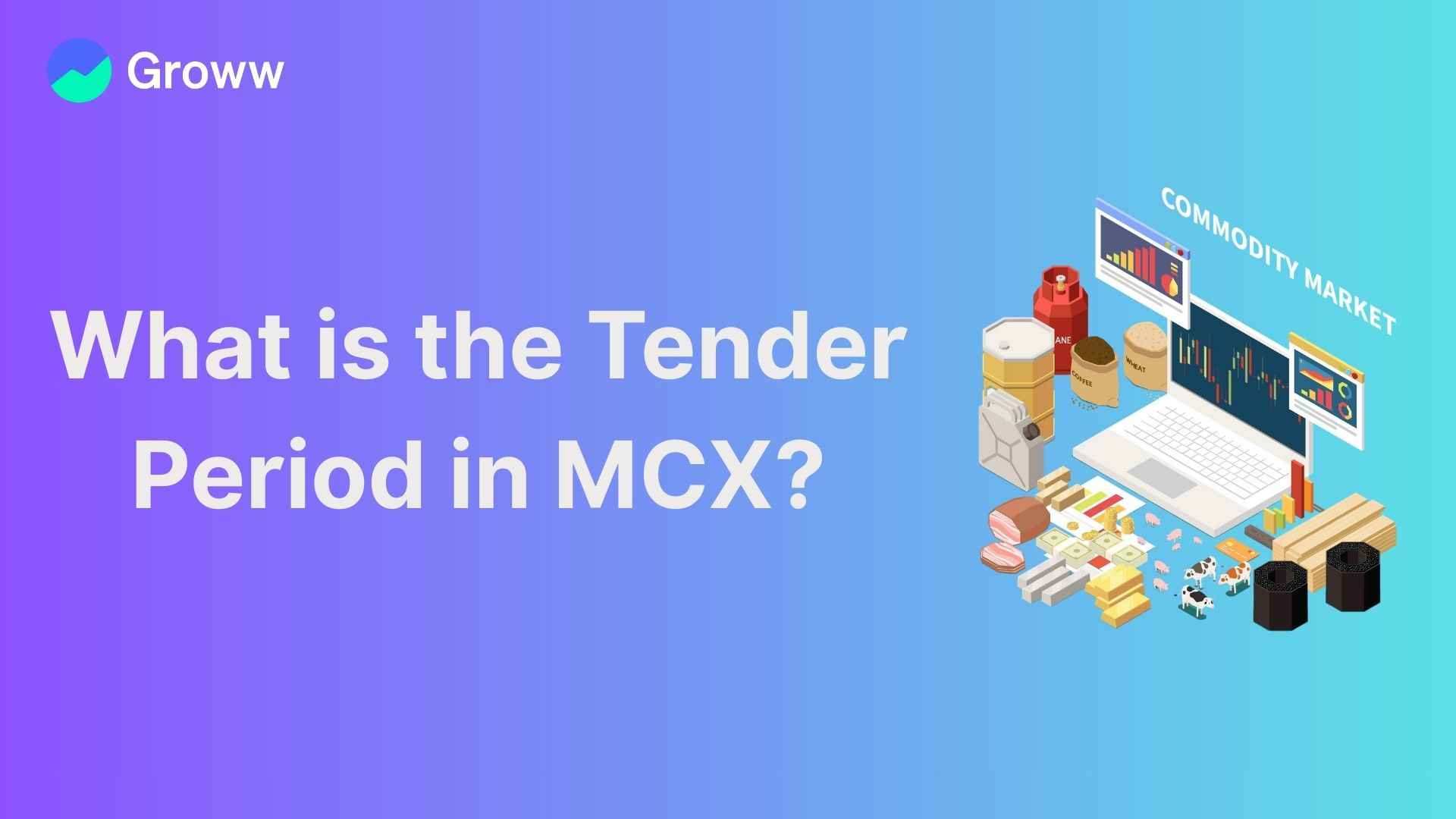What is Tender Period in MCX?

The tender period in the Multi Commodity Exchange (MCX) is referred to as the period before a futures contract expires. Also, the seller can confirm their intention to deliver the underlying commodity in question. Let’s take a close look at what the tender period is and its importance in commodity trading.
What is Tender Period in Commodity Trading?
The tender period is referred to as a staggered delivery period on commodity futures during which buyers/sellers with open positions can confirm their intention to take or give delivery. The tender period usually starts a few days prior to expiry and concludes on expiry.
The tender period plays a significant role in the settlement process of commodity trading, as traders can make use of this period to close their open positions and take delivery of the underlying commodity.
To better understand the tender period, it is necessary to examine how commodity futures and options operate.
A futures contract is a financial instrument in which the parties agree to purchase or sell an underlying asset at a predetermined price on a specific date. If the futures contract is tendered, parties in a futures contract are obligated to deliver or take delivery of the commodity.
An options contract is a financial instrument that gives the buyer the right, but not the obligation, to purchase or sell the underlying commodity at a predetermined price on a specific date. However, if the options contract is exercised, the seller of an option contract is obligated to purchase or sell the underlying commodity.
The tender period is crucial in the process of physical delivery and the settlement process of commodities. The tender period can help holders of futures and options contracts to tender or exercise the contract to take physical delivery of the commodity. Sellers can also notify the exchange of their intention to deliver the commodity during the tender period in person.
Rules of Tender Period in MCX
- The buyer/seller is allowed to mark their intention to give or take delivery anytime during the tender period.
- The tender period for standard commodities, such as gold and silver, in MCX begins five days before the contract's expiry.
- The tender period for commodities such as base metals (E.g., Lead, zinc) starts three days before the contract’s expiry.
- The tender period is staggered over several days, and sellers must declare their intention before the deadline.
- To discourage late delivery, an additional margin of up to 5% is applicable on outstanding positions.
Importance of Tender Period for Traders
- The tender period plays a significant role in the settlement and delivery process in commodity trading.
- Sellers of futures contracts can declare their intention to deliver the commodity during the tender period physically.
- Buyers of options contracts can also exercise their contracts to buy or sell the underlying commodity at a predetermined price.
- Knowing the tender period can help traders plan their trades and manage positions.
- The tender period is an integral mechanism that helps traders fulfil their obligations and settle trades.
Tender Period vs Expiry in MCX Futures
The expiry of futures contracts in MXC refers to the specific date on which the futures contracts are settled. The expiry date is the last date on which the futures contracts can be traded. Traders have to settle their trades before the contracts expire either through physical delivery or through cash settlement.
The tender period differs from the expiry date, as it begins before the contracts expire. During this period, sellers of futures contracts can declare their intention to deliver the commodity upon the contract's expiration physically.
Tender Period in Gold Futures: Example
Let’s look at an example to understand the tender period in more detail.
As of January 2025, the tender period for base metals begins 3 days before the contract’s expiry date.
For example, the tender period for gold futures expiring on September 26, 2025, will begin on September 23, 2025. During the tender period, sellers of futures contracts can notify the exchange if they will physically deliver the commodity.
If buyers have not closed or settled their positions, they will be assigned a seller on a random matching basis. Short sellers of futures contracts will also be obligated to physically deliver the commodity upon expiry.
Risks and Considerations
One of the primary risks that traders should be aware of during the tender period is the obligation to take delivery. For buyers, an obligation to take delivery may require them to physically store the commodity, which can incur storage costs.
Short sellers that do not own the commodity may need to purchase it and deliver the commodity, which can prove to be a cumbersome and expensive process.
Additionally, traders should be aware of the rules and regulations surrounding physical delivery and whether their trading platform or broker offers services for this purpose.